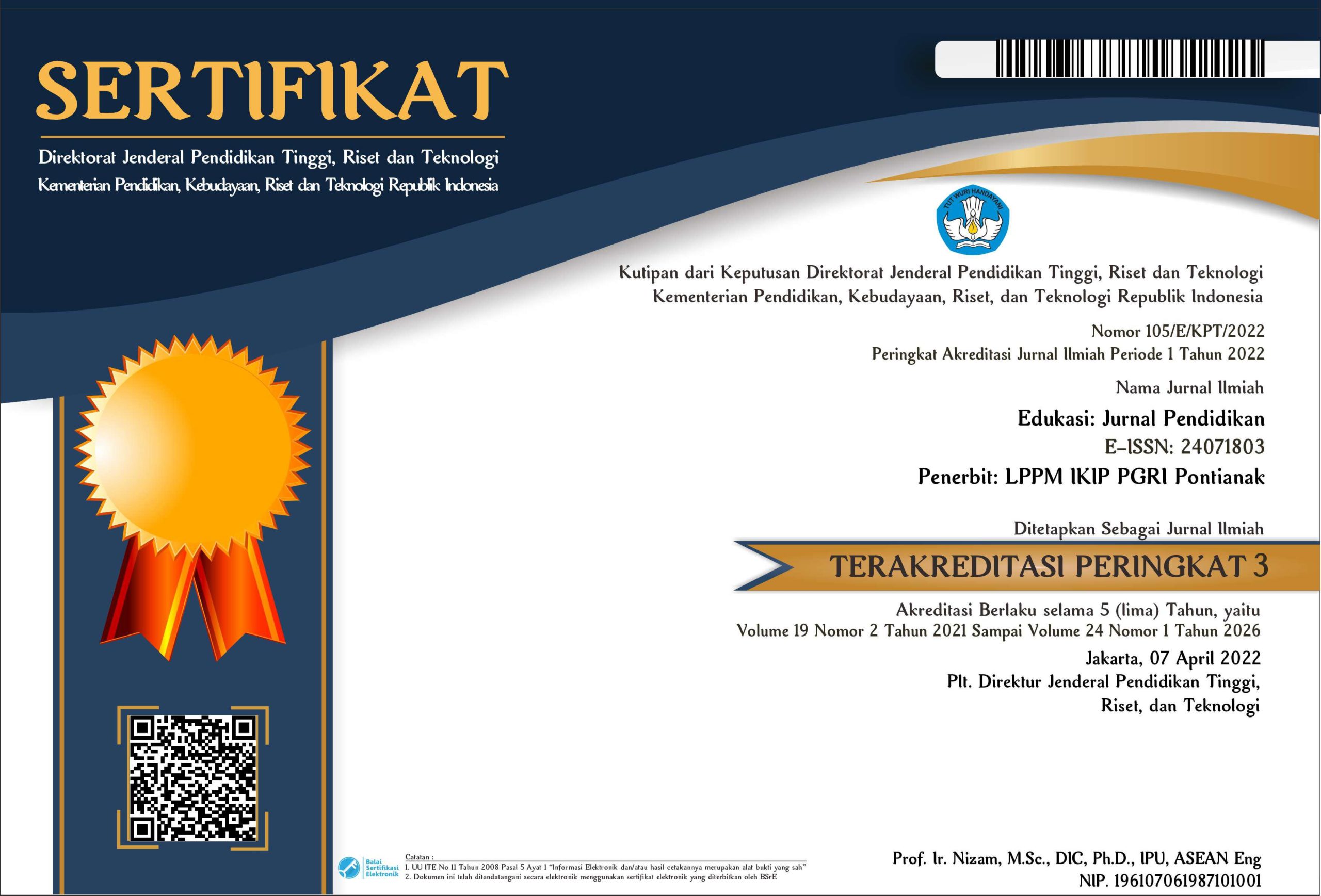Respon Siswa terhadap LKS Berbasis Inkuiri Terbimbing pada Submateri Sistem Pernapasan Manusia Kelas XI
DOI:
https://doi.org/10.31571/edukasi.v16i1.771Keywords:
LKS, inkuiri terbimbing, respon siswaAbstract
Penelitian bertujuan untuk mengetahui respon siswa terhadap Lembar Kerja Siswa (LKS) berbasis inkuiri terbimbing pada submateri Sistem Pernapasan Manusia. Metode penelitian adalah penelitian deskriptif dengan subjek penelitian siswa kelas XI MIA 4 SMA Negeri 1 Pontianak tahun ajaran 2016/2017 berjumlah 28 siswa. Penelitian merupakan penelitian lanjutan dari penelitian pengembangan yang telah dilakukan oleh peneliti sebelumnya. Teknik pengumpulan data menggunakan angket respon siswa. Angket yang digunakan merupakan angket tertutup menggunakan skala likert dengan empat skala penilaian. Terdapat tiga dimensi respon yang akan dilihat yakni dimensi kognitif, afektif, dan konatif. Berdasarkan hasil penelitian diperoleh informasi bahwa siswa memberikan respon positif terhadap LKS berbasis inkuiri terbimbing dengan persentase pada dimensi kognitif sebesar 80%, dimensi afektif sebesar 77%, dan dimensi konatif sebesar 78%. Secara keseluruhan siswa memberikan respon positif terhadap LKS berbasis inkuiri terbimbing dengan rata-rata persentase skor sebesar 78%.
Â
Downloads
Downloads
Published
How to Cite
Issue
Section
License
Authors who publish in this journal agree to the following terms:
- Authors retain copyright and grant the journal the right of first publication with the work simultaneously licensed under a Creative Commons Attribution License (CC-BY-NC) that allows others to share the work with an acknowledgment of the work's authorship and initial publication in this journal.
- Authors are able to enter into separate, additional contractual arrangements for the non-exclusive distribution of the journal's published version of the work (e.g., post it to an institutional repository or publish it in a book), with an acknowledgment of its initial publication in this journal.
- Authors are permitted and encouraged to post their work online (e.g., in institutional repositories or on their website) prior to and during the submission process, as it can lead to productive exchanges, as well as earlier and greater citation of published work.

 Download: 719
Download: 719


















